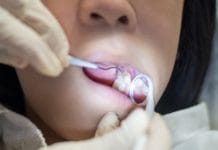Dental health problems, particularly the impact of various types of dental bacteria, is a complicated situation that is difficult to assess. Numerous studies have been taken to understand how genetics and environmental factors impact a child’s dental development. The finding of one recent study is worth examining alongside that of similar reviews to get a feel for how parents can assist their child’s dental development more efficiently.
The Finding of The Study
This particular study, as reported by Cell.com, took a look at all of the possible influences that genetics could have on a person’s dental hygiene. It focused specifically on children between the ages of about 5-11. To assist with the study, they focused on twins and the ways that environmental factors could influence the child’s dental health. What they found was probably not too surprising.
The microbial communities that were living in the child’s mouth were profoundly affected by the child’s genetics. For example, heritable oral taxa were identified in these children, meaning that parents passed on susceptibility to certain types of dental bacteria. However, they did find that genetics did not control other species of harmful bacteria.
As a result, they stated that environmental factors, such as a child’s upbringing and social situation, could also affect the development of bacteria in the mouth. It is worth looking past this study and onto others to get an idea of just how problematic social situations, particularly the influence of the parents, can be on a child’s oral health.
Genetics Are Not the Only Influence Parents Have on Dental Hygiene
The fact that genetics doesn’t control every aspect of a child’s dental hygiene is backed up by various studies into how environmental factors influence the way a child takes care of their teeth. For example, one study looked at 296 different pairs of parents and their children to get a feel for how the parents’ influence and behaviors affected the oral health and development of their children.
Without going into excessive scientific detail, it was found that parents with poor oral health behaviors tended to have children who followed their example. Conversely, parents with excellent dental health abilities had children with stronger and healthier teeth. As a result, it is essential for parents to model good behavior in their children.
This fact is particularly true of children who come from parents with a history of poor dental health. As genetics do pose a high risk of increasing the presence of some types of bacteria, it is crucial to combat that problem with increased and improved oral health techniques. Parents with these concerns need to make sure they understand proper ways of modeling dental hygiene to their children.
Overcoming These Influences
Parents who want to model good dental behaviors for their children need to take steps to overcome various environmental concerns. One study identified various issues that could affect a child’s hygiene, such as poor modeling, economic pressures, and social angst from peers. As a result, it is important to take a multi-faceted approach to this concern.
For example, the study suggested that parents need to find ways to get financial support if they cannot afford expensive dental procedures. An expansion of their insurance needs, including potential Medicaid reimbursement, may be necessary. They also stated that it was crucial to improving the educational methods parents use to get their children brushing their teeth.
It is also essential for parents to find ways to overcome a child’s resistance to proper dental health procedures. Rewarding them with money or toys shouldn’t be frowned upon if it can help a child combat the negative influences that genetics and environmental factors can have on their dental health.











